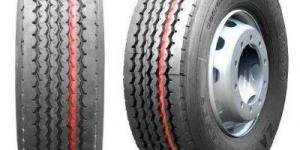Can I Use Winter Tires in the Summer?


We shouldn't use winter tires in summer. Tires are responsible for the grip of the vehicle on the road, something which is essential to maintain its safety. Loss of this grip can result in accidents, something which can happen more easily during different types of weather. This is particularly important for braking since grip is essential for this brake system in a car to function properly. Winter tires help to increase this grip on the road when the conditions are very cold, something which can lead to frost and ice. In the summer, these issues are not a problem. This is why there are tires which are better suited to warner weather.
At oneHOWTO, we ask can I use winter tires in the summer? We answer by explaining why it is best to have the right tires for the right season.
Can winter tires be used in summer?
If we take the question literally, you can use winter tires during the summer. There are many legal restrictions on what can a car can have in terms of lights, engine and tires. Tires are especially important. Those that are worn down or cracking can be very dangerous. However, using winter tires in the summer is not illegal. You will not be fined or penalized for doing so. This does not mean we should be using winter tires in the summer.
Winter tires are best suited for driving on ice or snow. They are usually recommended for use in temperatures below 7 ºC/44.6 ºF. For this reason, they are ideally installed in late fall when the temperatures start to drop. Of course, this will depend on where you live. There are some climates where it is cold most of the year. In this case, using the winter tires all year round won't be a problem.
Although you can use winter tires in summer and throughout the year, the following are reasons why you shouldn't:
- Braking distance: when winter tires are used in summer, the breaking distance can be increased. When the temperature rises a lot, the braking distance can be double that offered by a summer tire.
- Loss of efficacy: when climactic temperatures exceed 30 ºC/86 ºF, small balls begin to be created in the rubber of the tire that affect the movement of the wheel.
- Waste: winter tires undergo greater wear, so it makes no sense to use them unless strictly necessary, since they are more expensive (approximately 10%) than summer tires.
- Speed: there is a limitation of the maximum speed, since winter tires offer greater rolling resistance. This can also lead to an increase in fuel consumption.
Can I use winter tires for an inspection in summer?
As we have stated, it is not illegal to use winter tires in the summer. If you need your car to be inspected for whatever reason, using winter tires shouldn't cause any issues. This is whether it is for an MOT (in the UK) or state inspections (depending on which US state). However, the inspector may relay the advice we give here and suggest changing tires during the warmer months.

Are there year round tires for both winter and summer?
Replacing car tires twice a year can be a hassle for many drivers. It also means you need to find somewhere to store a full set of tires when they are not in use. If this is your case, there is a solution. You can use tires which are specially designed to be used throughout the year. They are known as All Season tires. As their name suggests, they have adaptations which make them suitable for use in all seasons.
There are also crossclimate tires. These are winter tires that can be used for the whole year, including summer. They are not the same as classic All Season tire. The latter have less performance with rising temperatures. Crossclimate tires are a type of summer tire that is an excellent alternative for those areas where it is only very cold sporadically.
The crossclimate tires are made with a special compound, similar to the one used in the winter versions. In this tire, the rubber also resists high temperatures. This best ensures good traction, braking and efficiency in summer and during the rest of the year.
In addition, these wheels have reinforced sidewalls and tread. There is a layer of silica that reduces the temperature when rolling and decreases fuel consumption. They also have longer sipes (i.e. the slits in the rubber which make up the tread. These have beveled angles and variable thickness, ensuring optimum performance on snow, as well as improving dry braking ability.
For those of you who think All Season tires might be a good option for you, use the link below to price a good tire from Pirelli:

What tires are better to use in summer?
The best tires for your vehicle are those that adjust to the weather of the area where you live and the time of year. Winter tires are mandatory throughout the year in several countries in Europe. In other countries, they are only required under certain conditions. In some countries they are mandatory depending on the season.
In the USA, the alternate use of summer and winter tires is recommended in some areas. Some states have climates which are similar throughout the year. Others will change from one extreme weather condition to the other as the seasons change. In these cases, you may need All Season tires or it might be best to have two sets.
If you live in a mountainous area, but drive down to more temperate areas regularly, you will need the appropriate tire. Crossclimate or All Season tires are best for these areas since you won't have to change them every time you descend.
Whether you want to drive in the summer or winter, you can take a look at our article on how to identify retreaded tires to learn more.
If you want to read similar articles to Can I Use Winter Tires in the Summer?, we recommend you visit our Cars category.






